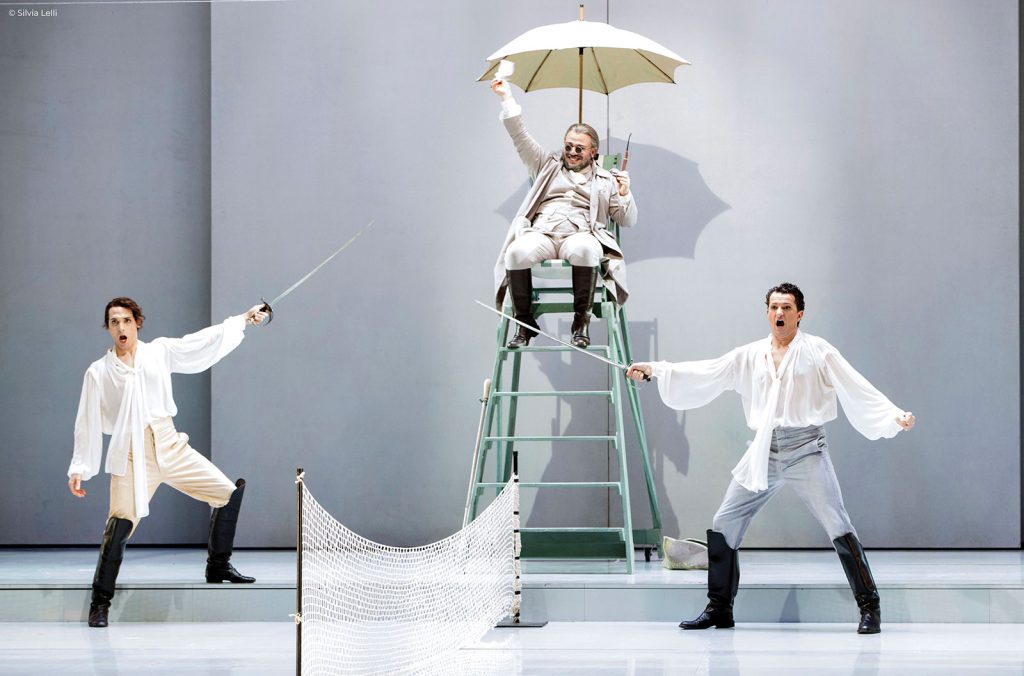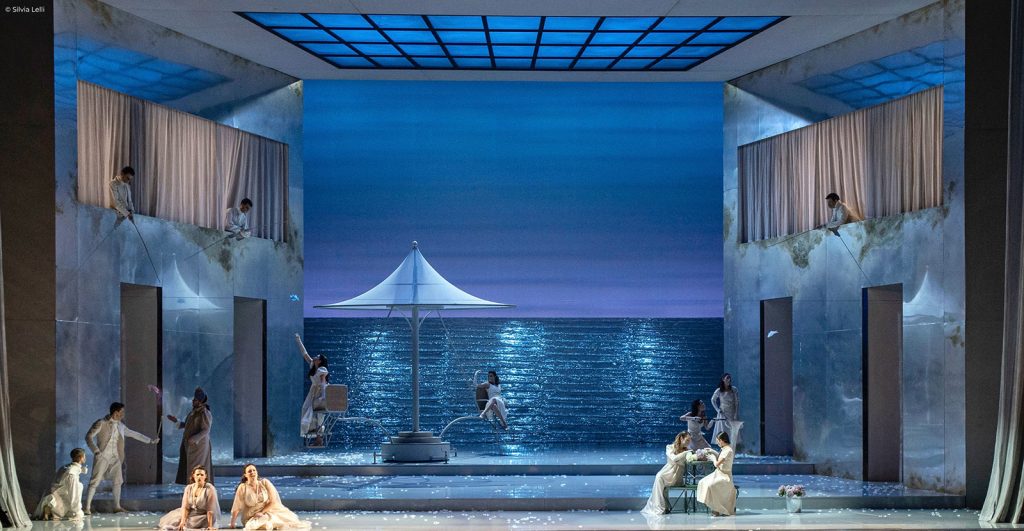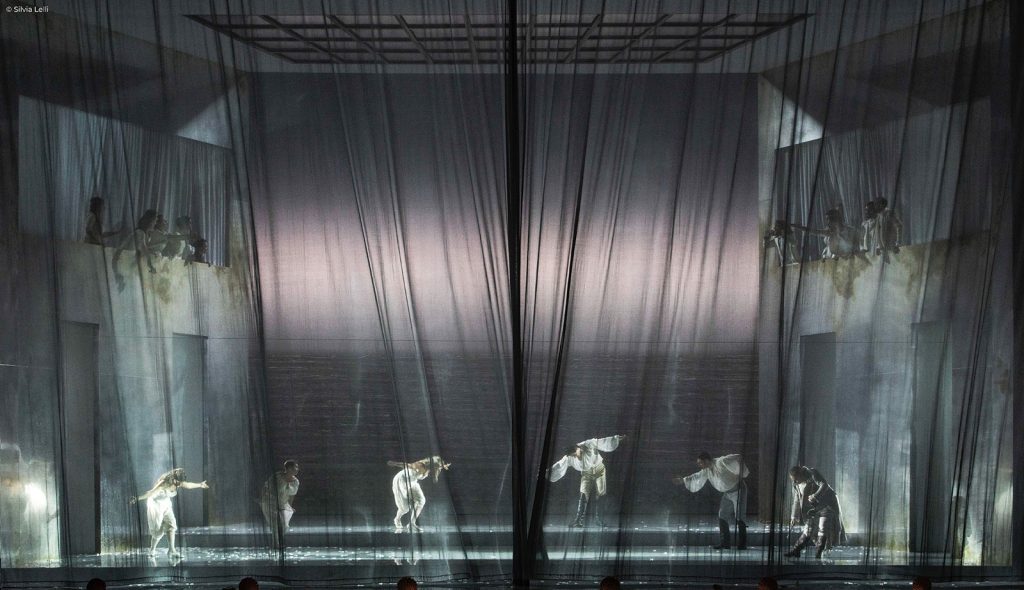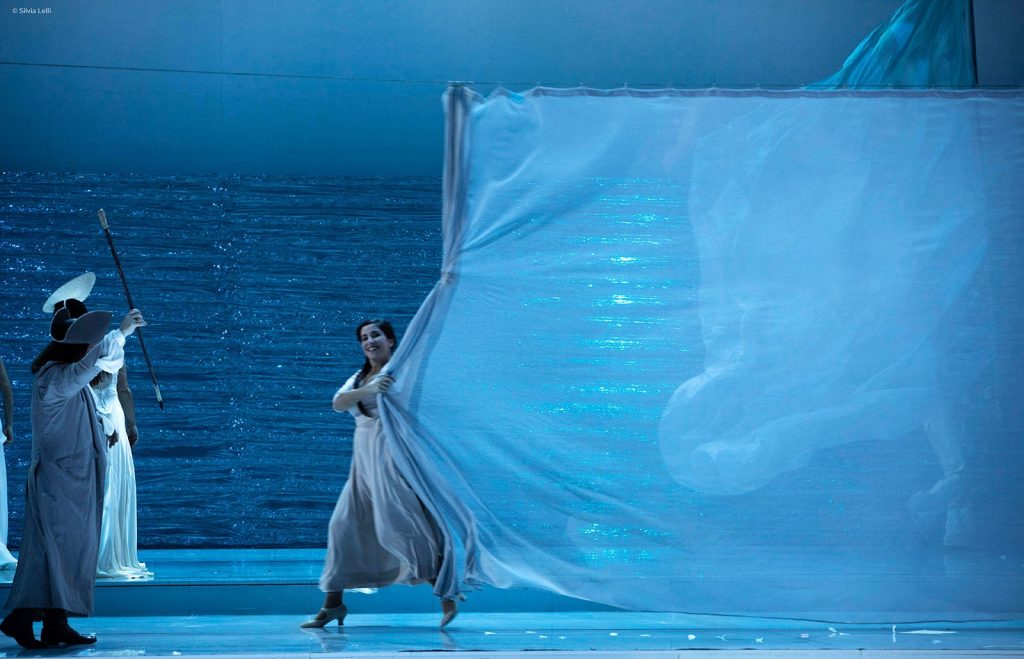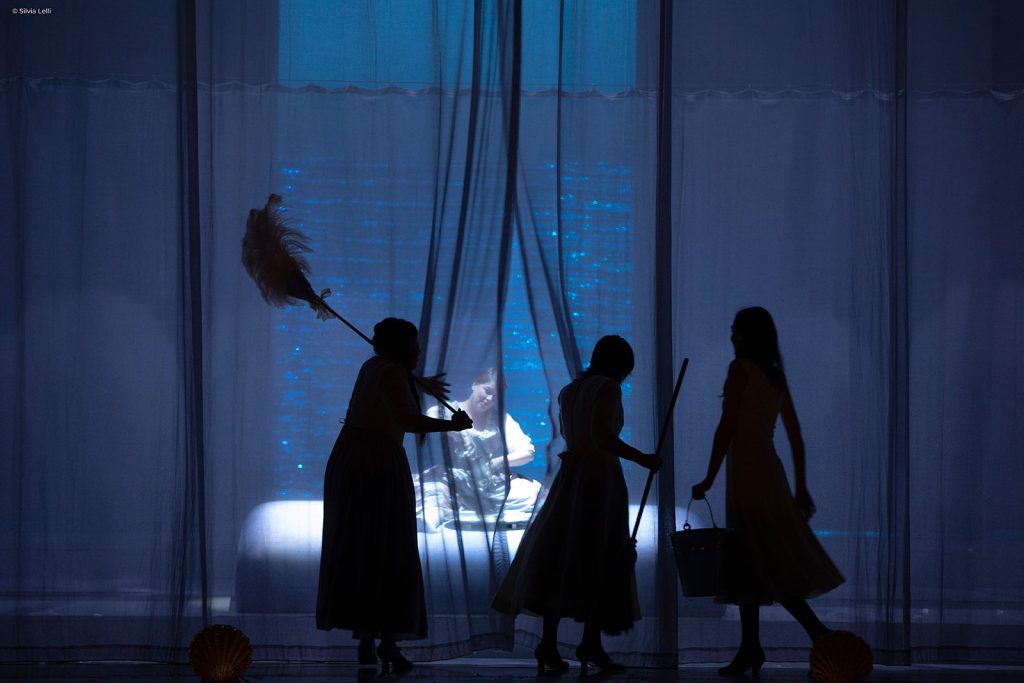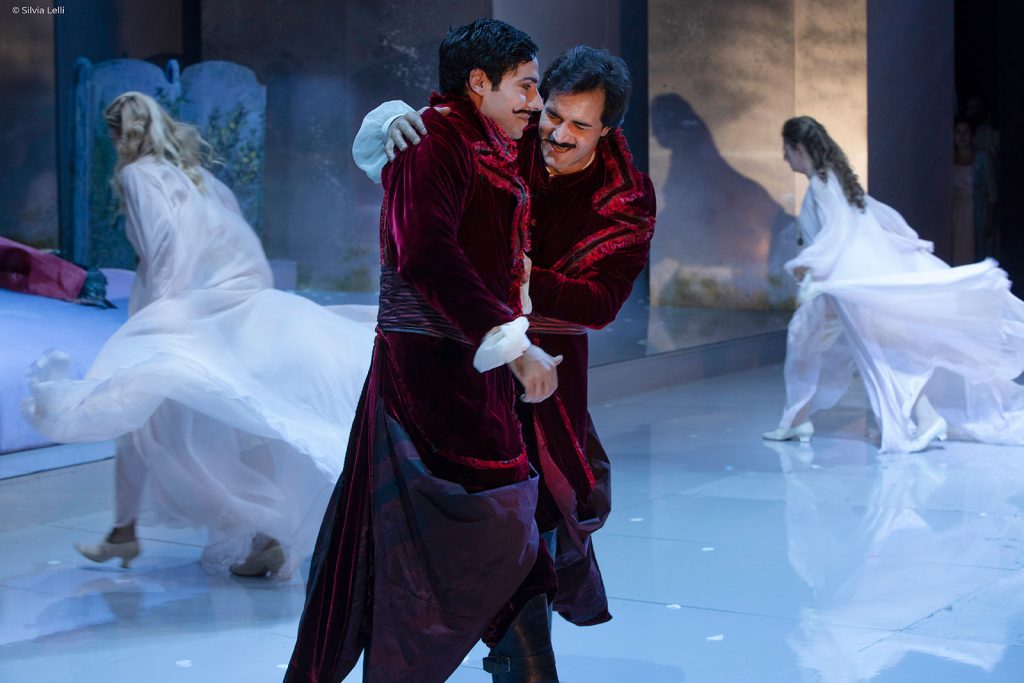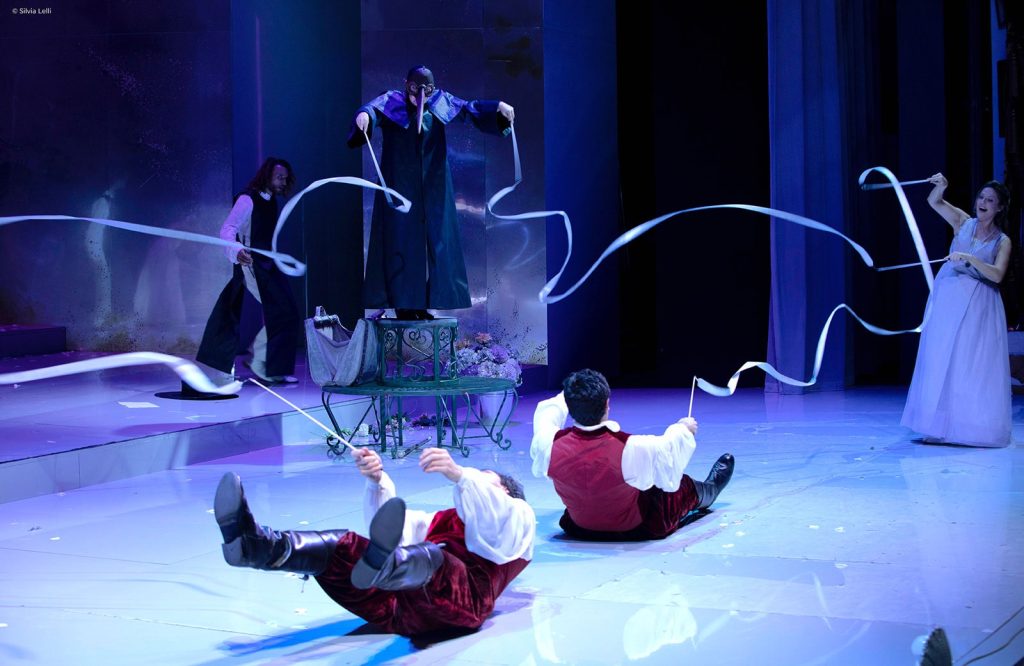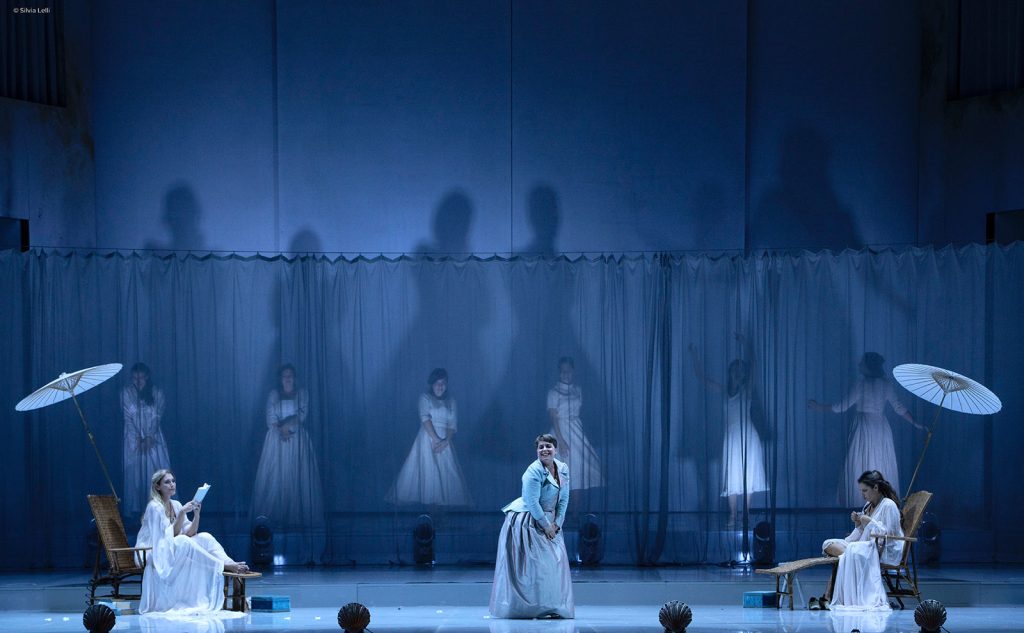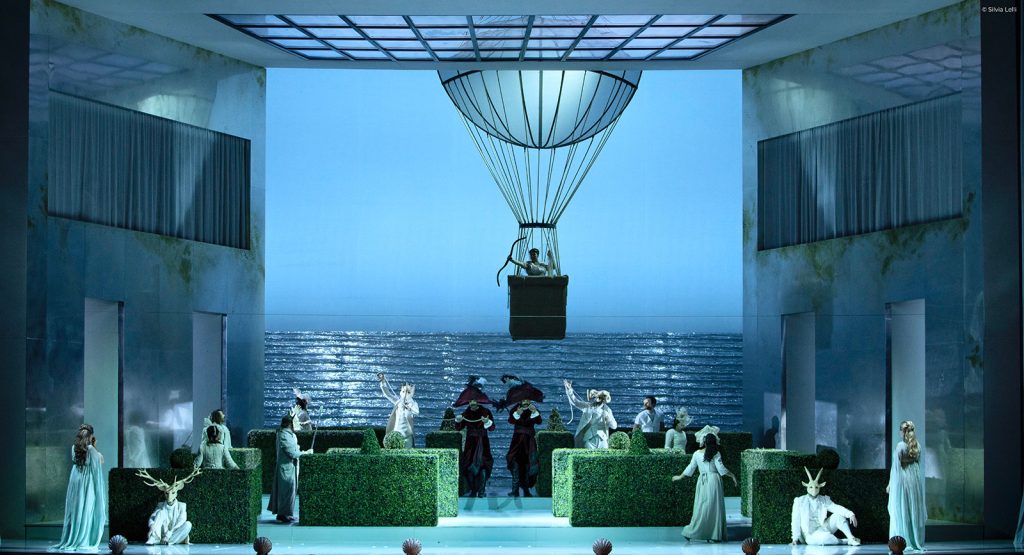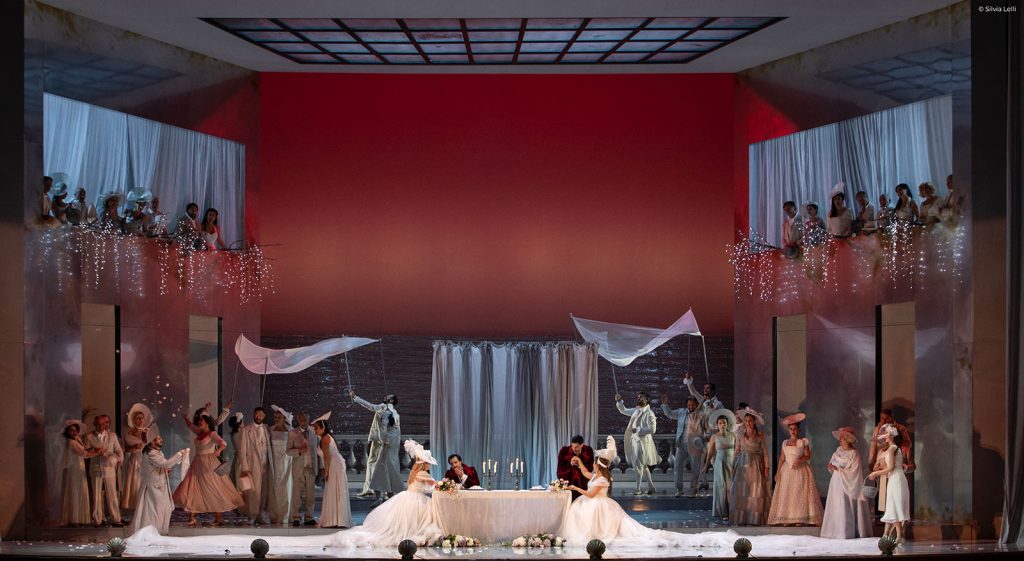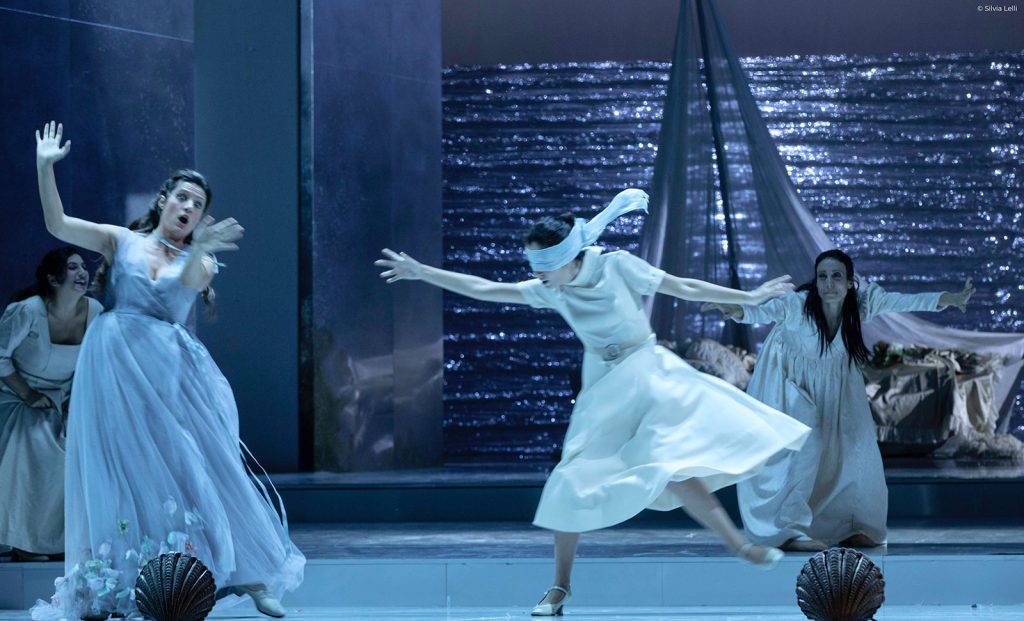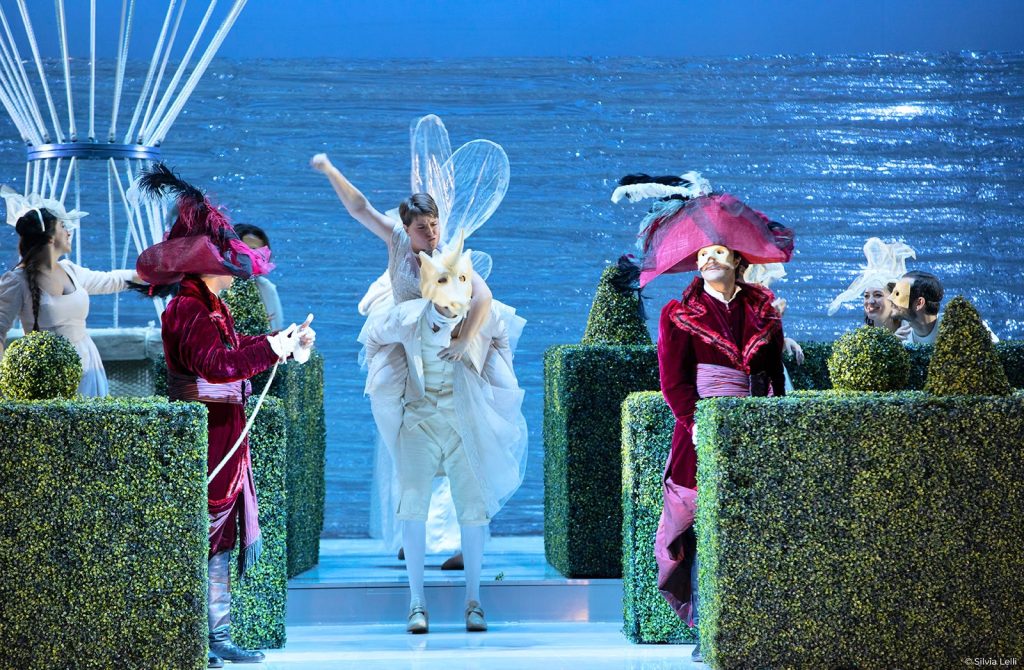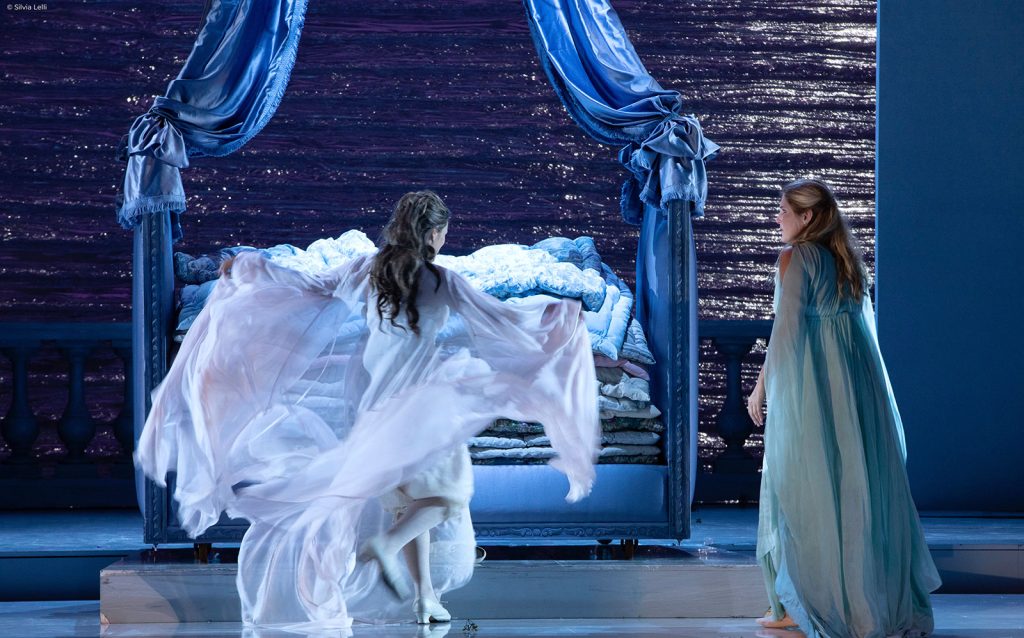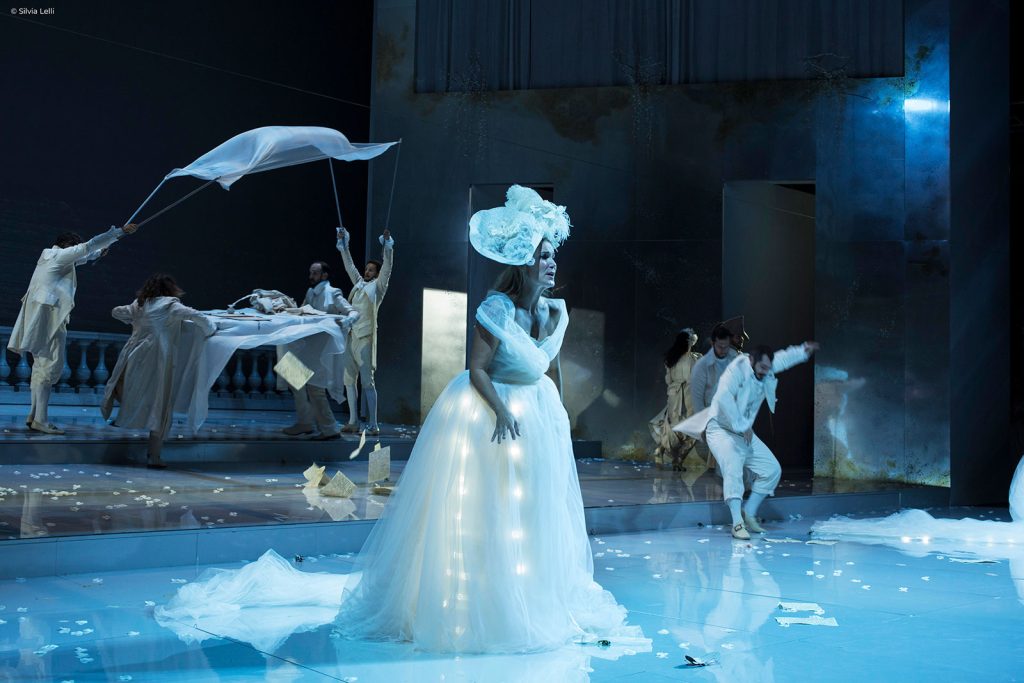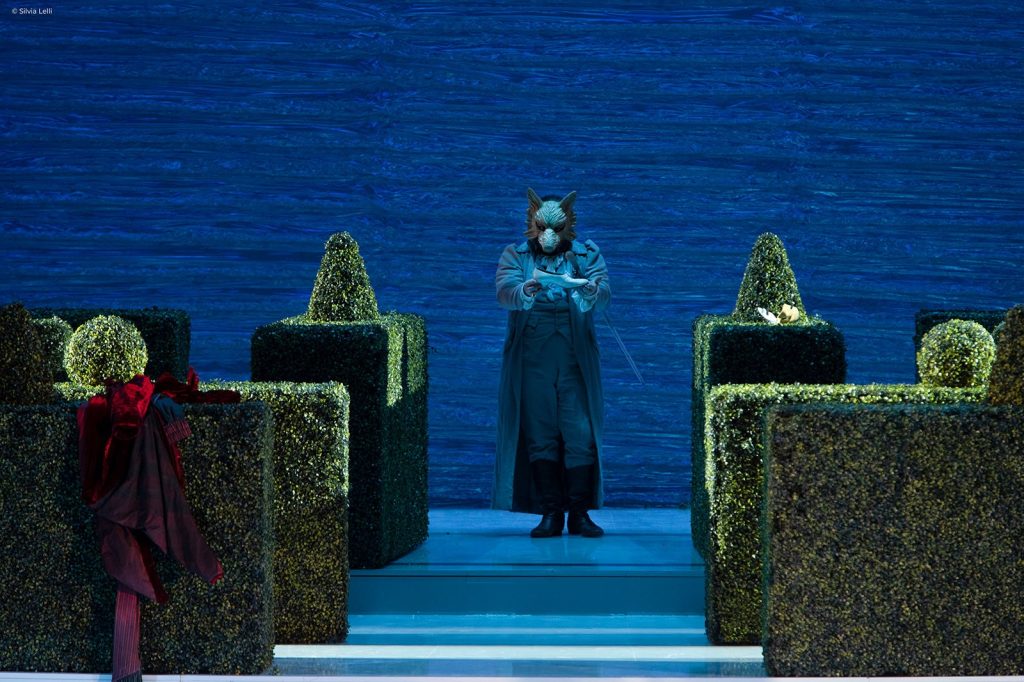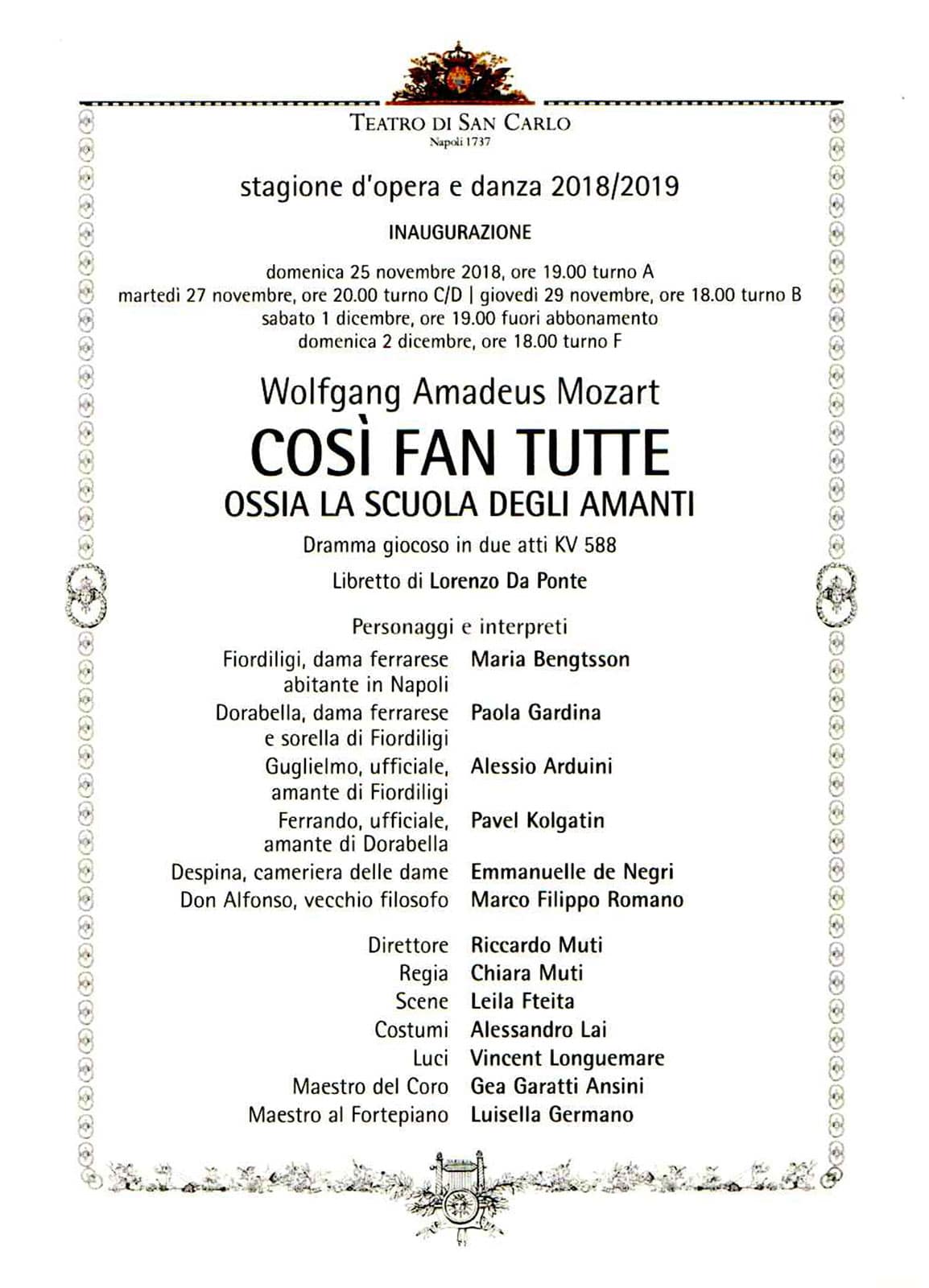
24 Jun Così fan tutte
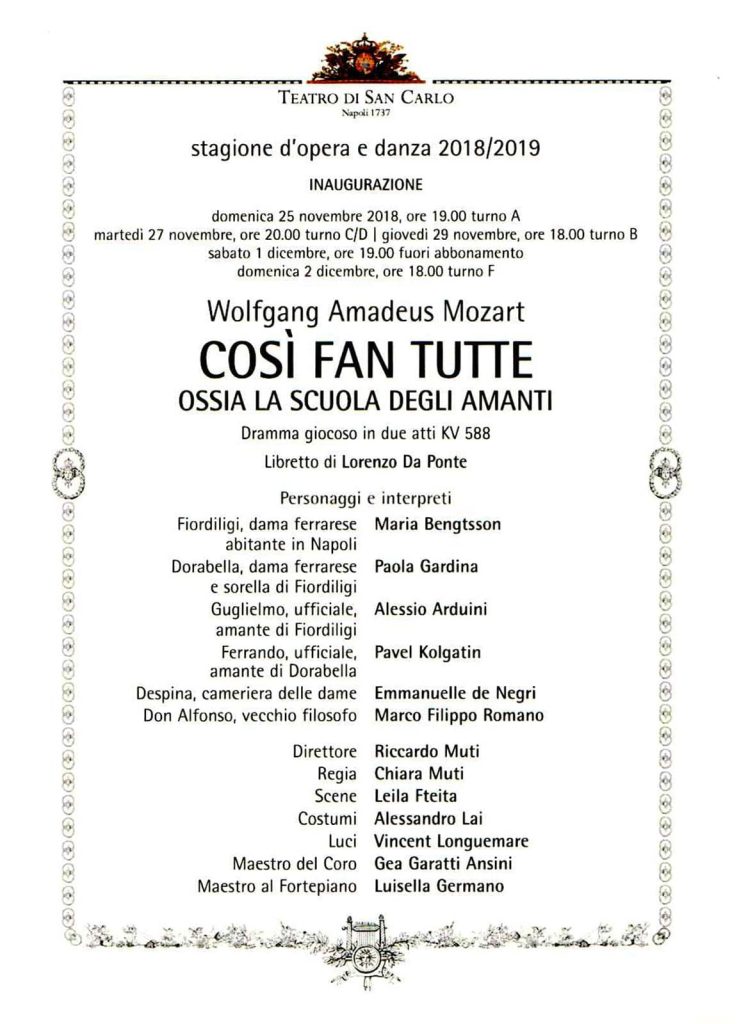
Director’s Note
“Così Fan Tutte” is the Dramma giocoso of Disenchantment… Do we truly love, or just play? And what is love, if not a matter of time and place… a chance… an encounter…
In this opera, illusion is more real than reality itself… and the imagined stage is like a “Magic Lantern” made of mirrors reflecting who we are in the imagination of those around us… It is a space of the mind where Air and Water reflect each other as a sign of eternal movement… a metaphor for our moods… as changeable as the elements that govern us… and the twelve figures interacting on stage with the protagonists are mirrors of past and future emotions… spectators and actors at the same time… acquiescent ghosts of lovers who were and who will be…
“Così Fan Tutte” is a metaphysical opera! A profound reflection on the essence of our being…
We are who we are through the eyes of others…
Every person who meets us holds a perception of us that escapes our own grasp… and so the reality they have of us is not the same as the one we attribute to ourselves… so… what is reality! If not
Ambiguity!
Don Alfonso, a man of enlightenment, is there to awaken disenchantment, to shake the two couples of lovers from the half-sleep of illusions. At the beginning of the opera, our four heroes still want to play… so I imagined the two young men, from their first appearance, soul and body, challenging each other at jeu de paume (and the set design is inspired by the famous Tableau du Serment du Jeu de Paume by Jacques Louis David).
And the girls? No less so… and throughout the opera, I imagined them unknowingly retracing the myths of the fairy tales that rocked our childhood dreams.
But as Camus says… “An adult must restrain himself!”… a grown-up must set limits… a child must not! And here are our four children, “poor little innocents” faced with themselves…
And here, astonishing us once again, is the deep understanding of “Female Desire” that Mozart and Da Ponte stage… Watery… Vibrant… Like the sea reflecting on the mirrored walls…Because women dream of Love, imagine it, reinvent it… And here lies the great lesson Mozart and Da Ponte give to Men… those men… who want to grasp love with their concreteness… Through that “Let’s play,” Don Alfonso challenges them with a double-edged sword… Because a woman… if you ignite her imagination, she is ready for anything… even to believe the impossible just to be desired… and the men, disguising themselves, deceive themselves… tickling the desire of their lovers and leading them astray… and betray themselves in the process… losing themselves in the game they think they control.
Imagine Mozart, bent over sheets of music, rereading every syllable to make it vibrate with the sound of his notes… As he surveys the original manuscript of Così Fan Tutte, a solitary correction speaks for us… When Ferrando, humiliated by Dorabella’s betrayal, returns to Fiordiligi to plead for her love… In Da Ponte’s version, tormented, looking at her, he murmurs to himself: “Ah! How her constancy, at those looks, at what she says, begins to waver.” Well! Mozart instantly cancels “her” and changes it to “my”… Mozart himself reveals the key to the story! With that simple “my” he whispers to us that it is not only the woman who wavers but also the man beside her!
Playing leads to being played, and, against his will, Ferrando ends up falling in love with the woman he should only love for the game… and here we cannot help but recall Mozart’s own life… and the immense sacrifice he made convincing himself he loved Constanze, the sister of the woman he desired above all others… Aloisia.
Is this perhaps why the pairs of lovers seem more believable and homogeneous (in vocal texture) when reversed? The sensitivity of Fiordiligi and Ferrando, and the exuberance of Dorabella and Guglielmo… and even Fiordiligi herself, before succumbing to betrayal, asks Despina to bring the men’s clothes, intending to join them on the battlefield… and disguised, she says: “Ferrando’s clothes will suit me… Dorabella can take Guglielmo’s”… clearer than that… Fiordiligi can only wear Ferrando’s clothes.
And yet, in the end, they are forced to leave, with infinite melancholy… the love rediscovered in place of the promised love, and that “My idol, if this is true… with faith and love I will repay your heart” takes on a new, poignant meaning… filled with a vast sense of Fragility… The two men can only answer “I believe you, beautiful joy… but I do not want to test it…” Here is an act of faith in accepting human imperfection… Sublime human complexity… an elusive work like the elements that animate it… Masculine and Feminine… two worlds naturally distant and opposed… that can only attract each other to Complete each other…
And here is Don Alfonso, teaching men the only lesson to learn at the end of the games, and anything but a criticism of women: “All accuse women and I excuse them, if a thousand times love changes, others call it a vice, and others a habit, and to me it seems the necessity of the heart… The lover, finally disappointed, should not condemn others but his own error since young, old, beautiful and ugly repeat with me Così Fan Tutte.”
That is, eternally dreaming…
But nothing is eternal, and the seed of the end is already in that first farewell of the lovers pretending to go to war… in that “Farewell, my heart is divided, my beautiful idol,” where each, lost in their own world, weeps sensing the end of everything. Mozart’s music is there to remind us, eternally, who we were… and we wish those throbbing accents would last forever… But it is only a fleeting moment of sublime perfection…
And in that miracle of suspended notes creeps that “I’ll die if I don’t laugh” whispered through Alfonso’s teeth reminding us that the silent disease called cynicism will inevitably infect us all! And that that first farewell will end up being the last… and the lovers who, for a game, are saying goodbye right there in front of us… do not know that it is childhood they are saying goodbye to forever.
Farewell… And again, forever, before and after us, Mozart slyly from the Beyond reminds us… “Laugh… I have already laughed and will laugh again!”



